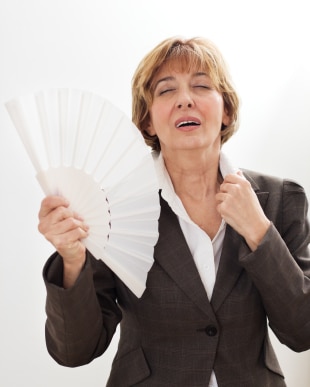 What is Perimenopause?
What is Perimenopause?
Perimenopause is sometimes referred to as the menopause transition, which may be an easier way to think of this phase of a woman’s life. To better understand perimenopause let’s review what menopause is.
Menopause is the ceasing of a woman’s menstrual period. It is a single point in time, but that point is not determined until there have been 12 months of no menstrual periods in the absence of any pathologic process. So it’s determined in retrospect and it reflects a near complete cessation of ovarian hormone production. And, postmenopause is any period after the final menstrual period regardless of whether it was natural or surgically induced (hysterectomy).
Perimenopause is that period leading up to menopause during which a woman’s hormone secretion becomes erratic leading to irregularities in the menstrual cycle. By definition perimenopause ends 12 months after the final menstrual period. So it can be a little confusion, but these definitions are important to physicians for research purposes and so that we can talk apples to apples.
So perimenopause is the transition from normal and regular menstrual periods to 12 months of no periods. Perimenopause and postmenopause are phases and menopause is a single event (or absence of event).
http://www.youtube.com/watch?v=R-WW-rtkg2U
What Happens During Perimenopause?
During menopause a woman’s ovarian hormone production will fluctuate from one month to another. This leads to irregular menstrual periods, but can also be characterized by symptoms related to a decline in those ovarian hormones. The ovaries make estrogens, progesterone, and some testosterone. Testosterone in women is also made in the adrenal glands.
Some women sail through perimenopause and the postmenopausal periods with very few symptoms or complaints, but for some the symptoms of perimenopause and menopause can range from mild to debilitating. Since there are receptors for these ovarian-produced hormones throughout the body symptoms of perimenopause and postmenopause can be numerous.
During this perimenopausal phase women typically see a greater decline in progesterone than they see in estrogen. This is some times called estrogen dominance, but levels of both hormones are declining.
The more common perimenopausal symptoms include night sweats and hot flashes, mood swings, irritability, brain fog, memory difficulty, depression, anxiety, headaches, sleep disturbances, loss of libido, vaginal dryness, pain, changes of the hair and skin, weight (fat) gain – so pretty much anything undesirable you can think of.
Perimenopausal Treatments
There are numerous pharmacologic and non-pharmacologic treatments available to help women go through this sometimes unpleasant and challenging phase called perimenopause. The more common perimenopausal treatments include herbs, hormones, and antidepressant medications.
See related articles.
Avoid Symptoms Of Low Progesterone
Low Estrogen Symptoms: Who Wants Them?
